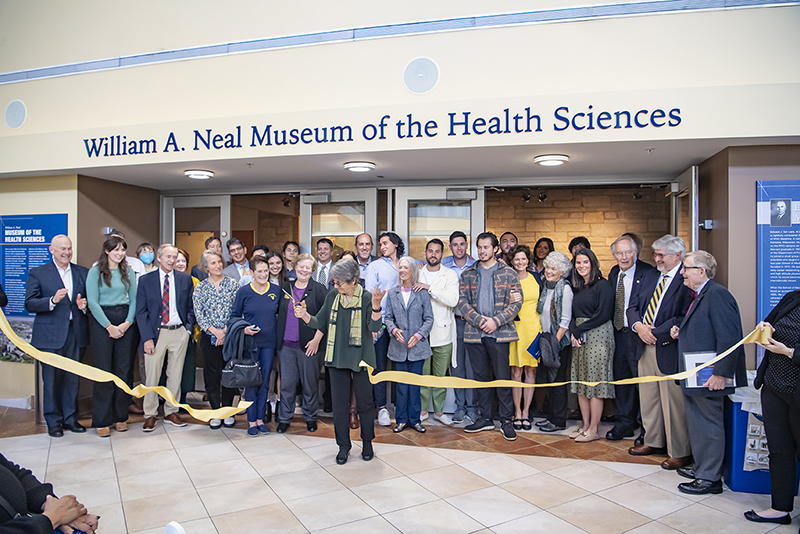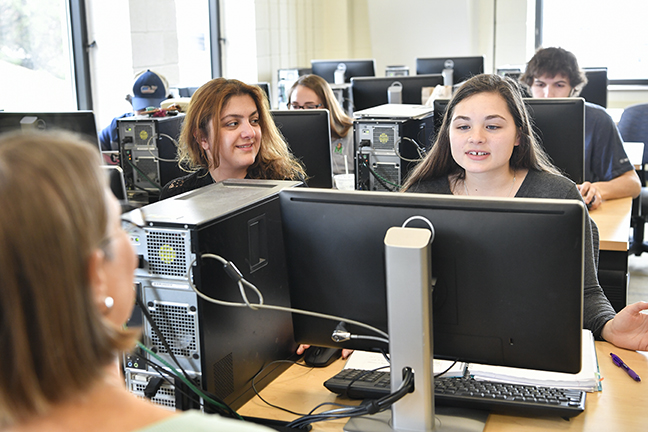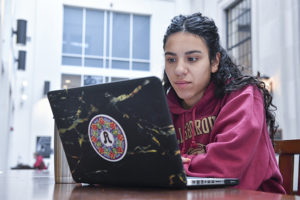A phrase being used with more frequency in higher education is the “21st century research library.” In fact, you often hear library leaders discussing how their goal is to help their organization become one. What you often don’t get is a definition of what that means exactly. One reason for this is that the definition is still being discovered. But even though we don’t have a complete definition, we certainly have the clear outlines of one. Here are elements of a 21st century research library that resonate with me:
Focus on the needs of the campus and changes in higher education
In the 20th century there was much effort on modernizing the systems of the library, but much of that work tended to be internally focused. This work provided good results that are continuing to make access to our resources easier, thus bringing us to the place where we can now begin to look more outside of ourselves. We now need to be looking at what the challenges of our campuses are and leveraging our resources to support those new challenges. At WVU the big challenges set forth by our president include action on Education, Prosperity, and Health. In the libraries we are looking at new and innovative ways we are uniquely poised to support these.
Evolving role of liaisons
Libraries of the 20th century created liaison roles with academic colleges and departments to ensure the library collection reflected the needs of the unit’s research and teaching. With increased access to content outside of the library and the emergence of a digital approach to research and teaching, there are opportunities for new areas of engagement. Libraries have made great strides in evolving in support of teaching through more developed pedagogy around information literacy and are developing new strategies to support the research needs through new collaborations and services for scholarly communication, data management, data visualization, data analysis, copyright, GIS, and attending to the complete research cycle. This is a growth area for WVU Libraries that we are working on.
Increased access
WVU Libraries is in a difficult spot with this right now as our funding streams are tightened. But it also highlights the new reality of libraries that access is not simply about what we own. It is about what content we can make available to you. This means we are engaged in digitization projects for items that are unique to us; we are promoting and developing new ways to support open access to both research and teaching content; we are continually improving our technology and partnerships with other libraries for more seamless resource sharing. The most challenging area we face today is moving to more sustainable models for continuing and building our own collections. This is especially true in the sciences where the scholarly communication model has become too expensive and too vast for even the best-resourced library. In fact, what the 21st century research library is evolving into is a “Just in time” model (we provide the information just in time for the researcher) from a “Just in case” (we house as much as we can just in case an item is needed) model of collection development. Libraries are now talking about this in terms of the owned vs the facilitated collection.
New methods of content creation and curation
The challenged reality of sustainable collection development has led libraries to take a more active role in the publishing process itself. Most libraries have an institutional repository (IR) that allows a campus to host items such as student electronic theses and dissertations (ETD’s), faculty manuscripts, and other campus information fit for open sharing. WVU had an IR that we are in the process of replacing. We are also hosting the Digital Publishing Institute directed by English professor Dr. Cheryl Ball that will provide scholarship, teaching, and publishing of scholarly and educational content, especially for items that are multimedia based. Libraries face opportunities around hosting and facilitating more student content, such as student research journals.
Staff development
Because libraries are changing, so are the staffs that keep them running and changing. This means we need to invest in continuing growth of our staff through professional development, training, and engagement with the profession at large. It also means that we need to be attending to the culture within our organization to ensure that it supports the new demands of evolution, collaboration, and an outward campus focus. Our efforts to become a 21st century library are only as good as having the staff that can make it so.
Collaboration
Last, but perhaps most importantly, collaboration is key in the 21st century library. We need to be doing so in every direction possible. Internally, as the demands for new and widening expertise within the library increase, we need to learn to work with each other to put our various insights and experiences together for the best outcomes in new situations. We need to be not only a service to the campus, but a partner as well so that we learn where our resources and expertise can aid in solving large campus challenges. And finally we need to be partnering with peer institutions, not only for resource sharing but also for the development of new systems and services that benefit the academy and libraries in general. We can no longer develop and problem solve in our own bubbles. Our challenges have gotten too complex and our pocketbooks too thin for such an approach.
What am I missing? Are there other hallmarks of the 21st century research library that you think we need to be attending to, especially at WVU?









